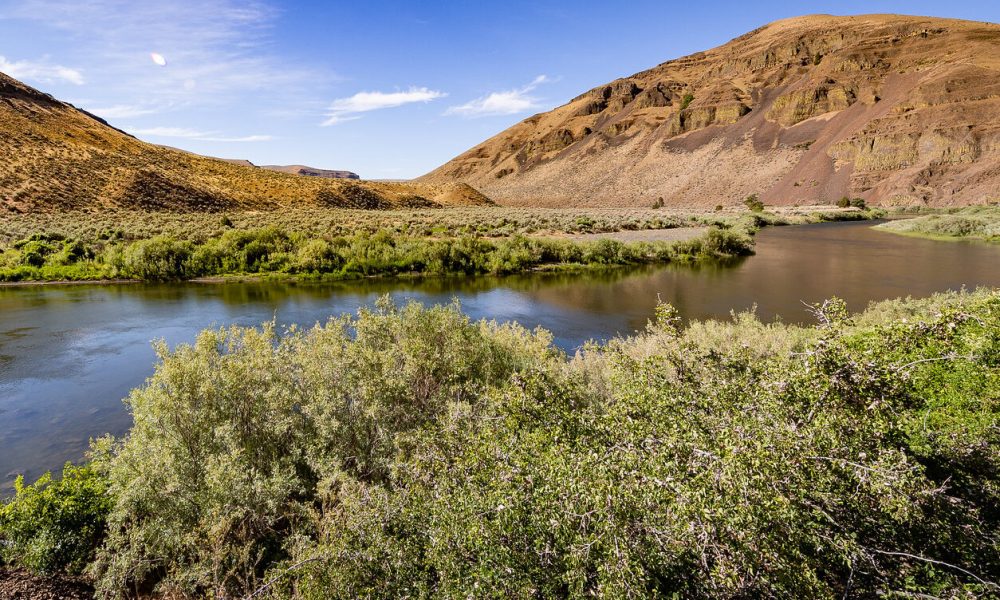Monsanto Company will pay Oregon a $698 million settlement to end litigation tied to its alleged role in polluting the state with toxic chemicals that still remain in landfills and riverbeds decades later.
The settlement is the largest environmental damage recovery in Oregon history, Attorney General Ellen Rosenblum said Thursday. For more than 90 years, Monsanto was responsible for polluting Oregon with compounds called polychlorinated biphenyls, the Oregon Department of Justice had alleged in its 2018 lawsuit filed in Multnomah County Circuit Court.
Monsanto was the only manufacturer, seller and distributor of the compounds, which formerly had widespread use in a variety of products, including coolants, electrical equipment, hydraulic oils and paint, caulking and copy paper. The company is owned by Germany-based Bayer AG, a large pharmaceutical and biotechnology company.
Polychlorinated biphenyls, also called PCBs, are colorless or light yellow crystalline compounds that were once used in products because they can resist fire. But the Centers for Disease Control and Prevention has said the compounds can cause cancer in animals, and the Environmental Protection Agency says they are likely human carcinogens.
“This is a huge win for our state,” Rosenblum said in a statement. “PCBs are still present throughout Oregon — especially in our landfills and riverbeds — and they are exceedingly difficult to remove, because they ‘bioaccumulate’ in fish and wildlife. Cleaning up our state from this horrific environmental degradation will be as costly and time-consuming as it sounds, but this settlement means we now will have resources to help tackle this problem.”
There are more than a dozen damaged waterways throughout the state, including Portland Harbor, Lower Columbia River, Middle Columbia River, Willamette River, Upper and Lower John Day Rivers and Coos Bay.
PCB manufacturing stopped in 1977 amid mounting evidence they can harm the environment and pose health risks, according to the CDC’s Agency for Toxic Substances and Registry. Studies of workers exposed to PCBs found evidence that they are linked to cancer in the liver and biliary tract. The compounds also can harm the nose and lungs and lead to depression and fatigue.
In the environment, the compounds “bioaccumulate” in fish and wildlife, as species higher up the food chain receive and retain the PCBs from eating smaller species, according to the Department of Justice. They are not found in the environment naturally, so any presence is tied to Monsanto, the lawsuit said.
“Although it’s not enough to completely clean up our state, as a result of today’s settlement, we are now in a much better position to do the costly and time-consuming work that must be done to monitor, investigate, clean up and remediate the damage to Oregon,” Rosenblum said in a press conference announcing the settlement.
Oregon’s is the sixth settlement that the company has reached with states that filed similar lawsuits, including Washington, and the largest award so far, Rosenblum said. In 2020, Washington reached a $95 million settlement with the company, also that state’s largest environmental recovery.
The Oregon Department of Justice lawsuit alleged Monsanto knew as early as 1937 that the compounds were highly toxic but continued to produce them until their eventual ban in 1977.
The lawsuit sought damages for the harm to Oregon, including clean-up costs.
“Monsanto’s toxic legacy unfortunately lives on in our lands, rivers and other waterways – and poses ongoing risks to the health of our people and our environment,” Rosenblum said in a statement. “This is all the more reason why this settlement is so vitally important. Oregon and Oregonians will be the better for it.”
In a statement, the company said its agreement with Oregon has no admission of liability. The company said it has filed a lawsuit against former PCB customers to enforce its agreements and recover PCB-related litigation costs.
“The Oregon agreement contains no admission of liability or wrongdoing by the company,” the statement said. “The settlement terms reflect the unique challenges and trial procedures in this Oregon venue even though Monsanto voluntarily ceased production of PCBs in 1977 and never manufactured, used or disposed of PCBs in Oregon.”
The Oregon Department of Justice will work with state lawmakers, the governor and state agencies to put the funds to use for statewide remediation and clean-up. It can go toward projects that restore soils and riverbeds, for example.
In a statement, Gov. Kate Brown said: “This settlement is a major step in beginning to reverse the harmful effects of PCBs on Oregon’s environment.”
This story has been revised and updated with a statement from Bayer, Monsanto’s parent company.
Oregon Capital Chronicle is part of States Newsroom, a network of news bureaus supported by grants and a coalition of donors as a 501c(3) public charity. Oregon Capital Chronicle maintains editorial independence. Contact Editor Lynne Terry for questions: [email protected]. Follow Oregon Capital Chronicle on Facebook and Twitter.
STORY TIP OR IDEA? Send an email to Salem Reporter’s news team: [email protected].

Ben Botkin - Oregon Capital Chronicle
Ben Botkin covers justice, health and social services issues for the Oregon Capital Chronicle. He has been a reporter since 2003, when he drove from his Midwest locale to Idaho for his first journalism job. He has written extensively about politics and state agencies in Idaho, Nevada and Oregon. Most recently, he covered health care and the Oregon Legislature for The Lund Report. Botkin has won multiple journalism awards for his investigative and enterprise reporting, including on education, state budgets and criminal justice.









